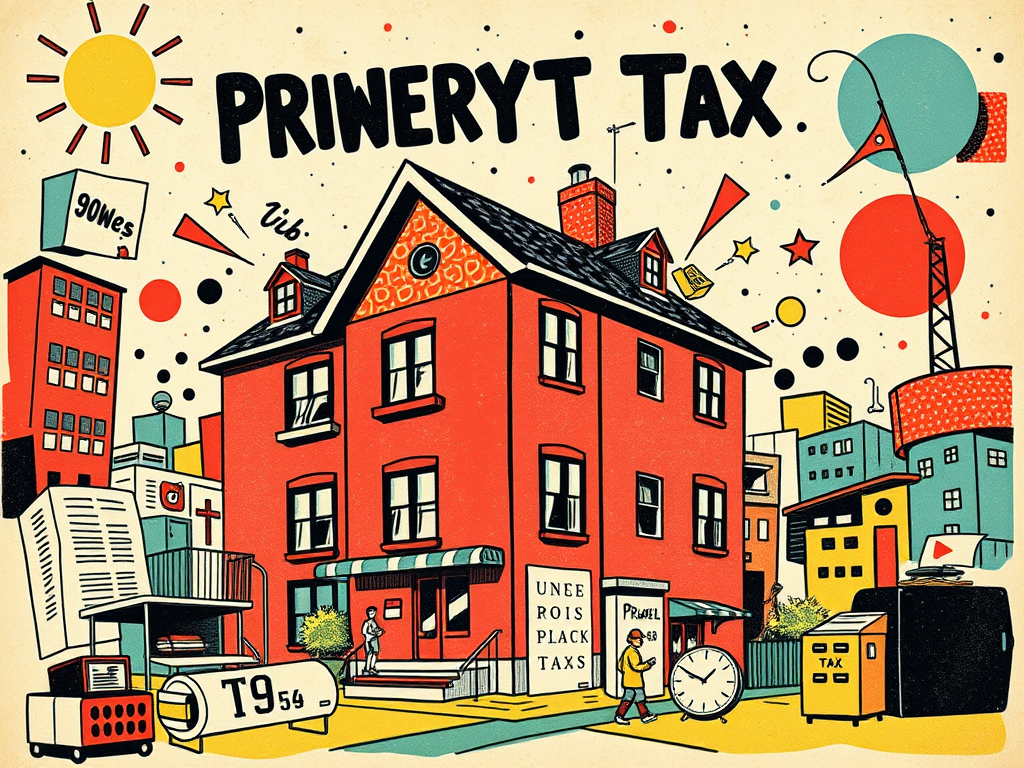
Post-Pandemic Property Boom: Why Greece’s Real Estate Market is Thriving in 2025
Reading time: 15 minutes
Table of Contents
- Introduction
- Greece’s Economic Recovery
- Key Factors Driving the Real Estate Boom
- Popular Regions for Property Investment
- Types of Properties in High Demand
- Investment Opportunities and Challenges
- The Role of Foreign Investors
- Government Initiatives and Reforms
- Future Outlook for Greece’s Property Market
- Conclusion
- FAQs
Introduction
As we navigate the complex economic landscape of 2025, Greece’s real estate market has emerged as a beacon of opportunity and growth in the post-pandemic era. This comprehensive analysis delves into the multifaceted factors contributing to the current property boom, offering insights into market trends, investment opportunities, and the broader economic implications for both domestic and international stakeholders.
The Greek property market’s resurgence is not merely a localized phenomenon but a testament to the country’s economic resilience and strategic reforms. As we unpack the data and examine key indicators, it becomes clear that Greece’s real estate sector is experiencing a renaissance that warrants close attention from investors, policymakers, and economic analysts alike.
Greece’s Economic Recovery
To understand the current real estate boom, it’s crucial to contextualize it within Greece’s broader economic recovery. Following years of austerity and financial challenges, the country has made remarkable strides in stabilizing its economy and fostering sustainable growth.
Key Economic Indicators
Recent data paints a promising picture of Greece’s economic health:
- GDP Growth: Annual growth rate of 3.8% in 2025, outpacing many Eurozone counterparts
- Unemployment Rate: Decreased to 9.2%, down from 16.3% in 2020
- Foreign Direct Investment (FDI): Increased by 22% year-over-year, reaching €5.2 billion in 2024
- Consumer Confidence Index: Climbed to 112.5, the highest level since 2007
These indicators reflect a robust economic foundation that has been instrumental in fueling the real estate market’s growth. The synergy between overall economic recovery and property sector performance cannot be overstated, as it creates a self-reinforcing cycle of investment and development.
Key Factors Driving the Real Estate Boom
Several interconnected factors have contributed to the surge in Greece’s property market:
1. Tourism Resurgence
The post-pandemic era has seen a remarkable rebound in Greece’s tourism sector. In 2025, visitor numbers have not only recovered but surpassed pre-pandemic levels, with over 33 million international arrivals recorded. This tourism boom has had a direct impact on real estate, particularly in popular vacation destinations and islands.
2. Remote Work Trend
The global shift towards remote work has positioned Greece as an attractive destination for digital nomads and international professionals. The Greek government’s introduction of a “digital nomad visa” in 2021 has further catalyzed this trend, leading to increased demand for both short-term rentals and permanent residences.
3. Golden Visa Program
Greece’s Golden Visa program, which offers residency permits to non-EU nationals investing in Greek property, has been a significant driver of foreign investment. The greece investment visa program has attracted substantial capital inflows, particularly from Chinese, Middle Eastern, and Russian investors.
4. Low Interest Rates
The European Central Bank’s accommodative monetary policy has kept interest rates at historically low levels, making mortgages more accessible and property investments more attractive. This has stimulated both domestic and foreign buyer activity in the Greek market.
Popular Regions for Property Investment
While the real estate boom is a nationwide phenomenon, certain regions have emerged as hotspots for property investment:
Athens and Attica Region
The capital city and its surrounding areas continue to be the epicenter of real estate activity. Key trends include:
- Gentrification of central neighborhoods like Koukaki and Metaxourgeio
- High demand for luxury apartments in upscale areas such as Kolonaki and Glyfada
- Growing interest in suburban properties, driven by the work-from-home trend
Greek Islands
The allure of island living has intensified post-pandemic, with notable growth in:
- Mykonos and Santorini: Continued demand for high-end villas and boutique hotels
- Crete: Increasing popularity among retirees and remote workers
- Smaller Cycladic islands: Emerging as hidden gems for investors seeking authenticity and potential for appreciation
Thessaloniki
Greece’s second-largest city has seen significant development, particularly in:
- The renovation of historic buildings in the city center
- New residential complexes in the eastern suburbs
- Commercial properties near the expanding port area
Types of Properties in High Demand
The real estate boom has not been uniform across all property types. Certain categories have seen particularly strong growth:
1. Luxury Villas and Apartments
High-net-worth individuals and investors are driving demand for premium properties, especially in Athens’ upscale neighborhoods and popular island destinations. These properties often feature amenities such as private pools, sea views, and smart home technology.
2. Short-Term Rental Properties
The booming tourism sector has fueled demand for properties suitable for short-term rentals. Apartments in city centers and houses in tourist hotspots are particularly sought after for their potential to generate rental income.
3. Sustainable and Eco-Friendly Homes
There’s a growing trend towards environmentally conscious living, with increased interest in properties featuring energy-efficient designs, solar panels, and sustainable building materials.
4. Mixed-Use Developments
Projects that combine residential, commercial, and leisure spaces are gaining traction, especially in urban areas. These developments cater to the evolving lifestyle preferences of modern residents and tourists alike.
Investment Opportunities and Challenges
While the Greek real estate market presents numerous opportunities, investors should be aware of both the potential rewards and risks:
Opportunities
- Capital Appreciation: Many areas still offer potential for significant property value increases
- Rental Yields: Strong tourism sector supports attractive rental returns, especially in popular destinations
- Diversification: Greek real estate provides a way to diversify investment portfolios beyond traditional markets
- Lifestyle Investment: Combines financial returns with the possibility of a Mediterranean lifestyle
Challenges
- Bureaucracy: Navigating Greek property laws and regulations can be complex for foreign investors
- Property Taxes: Recent changes in property taxation require careful consideration in investment decisions
- Market Saturation: Some popular areas may be approaching peak prices, limiting future appreciation potential
- Economic Volatility: While improved, Greece’s economy still faces challenges that could impact the real estate market
The Role of Foreign Investors
Foreign investment has played a crucial role in Greece’s real estate renaissance. Key aspects include:
1. Source Countries
Major sources of foreign investment in Greek property include:
- China: Attracted by the Golden Visa program and potential for capital appreciation
- Germany: Focusing on both residential and commercial properties, particularly in Athens and Thessaloniki
- United Kingdom: Post-Brexit interest in second homes and retirement properties
- United States: Growing interest in luxury properties and hospitality investments
2. Investment Trends
Foreign investors are showing diverse interests:
- Luxury Properties: High-end apartments and villas in prime locations
- Commercial Real Estate: Office spaces and retail properties in major cities
- Tourism-Related Properties: Hotels, resorts, and short-term rental accommodations
- Land Acquisition: Strategic purchases for future development projects
3. Impact on Local Market
The influx of foreign capital has had significant effects:
- Driving up property prices in popular areas
- Stimulating construction and renovation activities
- Encouraging improvements in property management and services
- Contributing to the overall economic recovery through job creation and increased consumer spending
Government Initiatives and Reforms
The Greek government has implemented several measures to support and regulate the booming real estate market:
1. Golden Visa Program Reforms
Recent adjustments to the Golden Visa program include:
- Increased minimum investment threshold in certain high-demand areas
- Enhanced due diligence processes to ensure transparency
- Introduction of investment options beyond real estate, such as bonds and equity
2. Tax Incentives
The government has introduced tax breaks to stimulate property investment:
- Reduced property transfer tax from 3.09% to 3%
- VAT suspension on new building permits until 2025
- Tax deductions for energy-efficient property renovations
3. Digital Transformation
Efforts to streamline property transactions include:
- Implementation of an electronic property transfer system
- Digitalization of land registry and property records
- Online platforms for property tax payments and declarations
Future Outlook for Greece’s Property Market
As we look ahead, several factors are likely to shape the future of Greece’s real estate market:
1. Sustainable Development
Increasing focus on eco-friendly and energy-efficient properties, with potential government incentives for green building practices.
2. Technology Integration
Growing adoption of proptech solutions, including virtual property tours, blockchain for property transactions, and AI-driven property management systems.
3. Infrastructure Improvements
Ongoing and planned infrastructure projects, such as the Hellinikon project in Athens, are expected to create new investment hotspots and enhance property values in surrounding areas.
4. Demographic Shifts
The trend of remote work and digital nomadism is likely to continue, potentially reshaping demand patterns in both urban and rural areas.
Conclusion
Greece’s real estate market in 2025 stands as a testament to the country’s economic resilience and strategic vision. The convergence of favorable economic conditions, government reforms, and global trends has created a robust and dynamic property sector that offers significant opportunities for both domestic and international investors.
However, as with any investment, due diligence and careful consideration of market dynamics are essential. The Greek property market’s current strength should be viewed within the context of broader economic trends and potential future challenges.
As Greece continues to solidify its position as a prime destination for property investment, stakeholders who approach the market with informed strategies and a long-term perspective are well-positioned to benefit from this Mediterranean real estate renaissance.
FAQs
1. What are the minimum investment requirements for the Greek Golden Visa program?
As of 2025, the minimum investment for the Greek Golden Visa program varies depending on the location. In high-demand areas like Athens and Thessaloniki, the minimum investment is €500,000, while in other regions it remains at €250,000. It’s important to note that these figures are subject to change, and investors should consult with official sources for the most up-to-date information.
2. Are there any restrictions on foreign ownership of property in Greece?
Generally, there are no significant restrictions on foreign ownership of property in Greece. However, properties in border areas and certain islands may require additional permissions. Non-EU citizens will need to obtain a tax registration number (AFM) and open a Greek bank account to complete property transactions.
3. What are the typical rental yields for properties in popular Greek destinations?
Rental yields vary depending on location and property type. In 2025, average gross rental yields in Athens range from 4% to 6% for apartments, while popular island destinations can see yields of 6% to 8% for vacation rentals during peak seasons. However, these figures are averages, and individual properties may perform differently based on various factors.
4. How has the COVID-19 pandemic affected the Greek real estate market long-term?
The pandemic initially caused a slowdown in the market, but it has since contributed to increased demand for certain property types. There’s been a growing interest in properties with outdoor spaces, home offices, and in less densely populated areas. The shift towards remote work has also made Greece more attractive to international buyers looking for a combination of lifestyle and investment opportunities.
5. What are the main costs associated with buying property in Greece?
The main costs for property purchases in Greece include:
– Property transfer tax: 3% of the property’s value
– Legal fees: Typically 1-2% of the property value
– Notary fees: Around 1% of the property value
– Real estate agent fees: Usually 2-3% of the sale price, paid by the seller
– Annual property tax: Varies based on the property’s value and location
Buyers should also consider potential renovation costs, especially for older properties, and ongoing maintenance expenses. It’s advisable to budget for approximately 10-15% of the property’s value to cover all associated costs and taxes.

Article reviewed by Everett Bellingrath, CEO | Business Growth Consultant | Transforming Mid-Sized Companies Through Operational Efficiency & Market Expansion Strategies, on March 11, 2025



